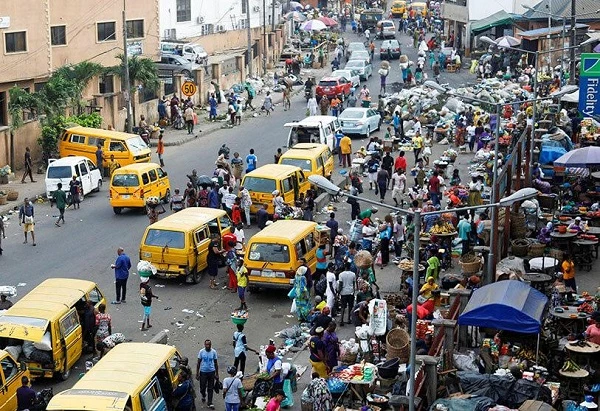Twitter shows lower-to-middle income countries have higher unemployment post pandemic
Strong domestic expansion benefits the stock market / Climate change will likely increase wheat prices in food-insecure areas and exacerbate economic disparity
This is the opposite of the 2008-2009 global economic crisis, when countries with higher incomes suffered more from the recession than countries with lower incomes. The study utilized Twitter sentiments to compare macroeconomic factors, such as unemployment and inflation, in Nigeria, South Africa, and Canada, which represent lower-middle, upper-middle, and high-income countries, respectively.
At the beginning of the pandemic, the unemployment rate increased in all three countries; however, Canada was able to control the rate after a couple of months, whereas Nigeria and South Africa continue to struggle with high unemployment.

Twitter shows lower-to-middle income countries have higher unemployment post pandemic (Illustrative image).
"This indicates how vulnerable lower-middle income countries are to lockdowns and economic limitations, bearing a greater loss during the COVID-19 pandemic than higher income countries," says York University Assistant Professor Jude Kong, the study's corresponding author and director of the Africa-Canada AI & Data Innovation Consortium (ACADIC).
Prior to COVID-19, lockdowns, and economic restrictions, Nigeria had a lower unemployment rate than South Africa, while South Africa had a lower inflation rate. During the pandemic, unemployment and inflation have increased more in Nigeria than in Canada and South Africa.
Particularly in Canada and Nigeria, which have both had high unemployment and high inflation throughout the pandemic, the inflation rate is rising in all three countries right now.

Unemployment and inflation have increased more in Nigeria than in Canada and South Africa during the pandemic (Illustrative image).
"The COVID-19 crisis has affected all income country groups. The burden, however, is much heavier on lower income classes. Coming back from this complexity will be difficult, especially for middle-income countries," says study co-author Professor Bruce Mellado, member of the Gauteng Premier COVID-19 Advisory Committee in charge of modelling from the University of Witwatersrand and iThemba LABS in South Africa and co-president of ACADIC. Johannesburg and Pretoria are located in Gauteng, the province with the highest population in South Africa.
"The management of the COVID-19 pandemic taught us about the importance of data to enact evidence-based decisions. The way policymakers view data has changed greatly as a result. We are looking forward to the use of more data in dealing with societal problems," says Mduduzi Mbada, acting director general of the Gauteng Province.
Despite the fact that South Africa's inflation rate is comparable to pre-pandemic levels, any policies implemented to combat high unemployment are anticipated to increase inflation. Although Canada's unemployment rate is still low, the country is currently experiencing its highest inflation rate in 15 years, which may have been a result of the government's decision to offer employment insurance and the Canada Emergency Response Benefit to workers who lost their jobs as a result of COVID-19.
The authors estimate the monthly unemployment rates for Nigeria and South Africa using unconventional data sources such as Twitter sentiment and Google Trends data, which contributes to the originality of this study. Monthly inflation data was available for all three countries, but South Africa and Nigeria lacked monthly unemployment data.
Social media and social networks, such as Facebook, Twitter, LinkedIn, Instagram, Snapchat, Pinterest, and Reddit, are filled with real-time data that is electronically stored and frequently accessible.
"They are well-posed to revolutionize the manner and the speed at which especially difficult to get infectious disease data is made available," says Kong. "Data used to inform infectious disease models usually comes from classical surveillance systems, but they suffer from several shortcomings, including severe time lags and a lack of spatial resolution. They also cost a lot."
Data from a particular nation can be used to gain a better understanding of local macroeconomic concerns and sentiments, potentially leading to more targeted and acceptable policies based on social media content.
"Social media can also provide data on behaviours and outcomes related to vaccine or drug use, including drug-related adverse events, complementing conventional vaccine and pharmaco-vigilance approaches, in which the tracking of vaccine- and drug-related adverse events mainly relies on passive reporting by physicians," says Mellado.
Researchers can determine the most popular topics and gauge public sentiment thanks to their abundance of text-based data in the form of posts and comments. This can help inform decision-makers and policymakers and facilitate a better understanding of local macroeconomic concerns and worries.
Today, the journal PLOS ONE published a paper titled A Cross-Country Analysis of Macroeconomic Responses to COVID-19 Pandemic Using Twitter Sentiments.
The research is part of the Global South AI4COVID Program, a multidisciplinary, multi-organizational effort supported by Pulse Lab Jakarta, Gender at Work, and Ladysmith. It was funded by the Swedish International Development Cooperation Agency and the Canadian International Development Research Centre.
Journal Reference: Zahra Movahedi Nia, Ali Ahmadi, Nicola L. Bragazzi, Woldegebriel Assefa Woldegerima, Bruce Mellado, Jianhong Wu, James Orbinski, Ali Asgary, Jude Dzevela Kong. A cross-country analysis of macroeconomic responses to COVID-19 pandemic using Twitter sentiments. PLOS ONE, 2022; 17 (8): e0272208 DOI: 10.1371/journal.pone.0272208
End of content
Không có tin nào tiếp theo



